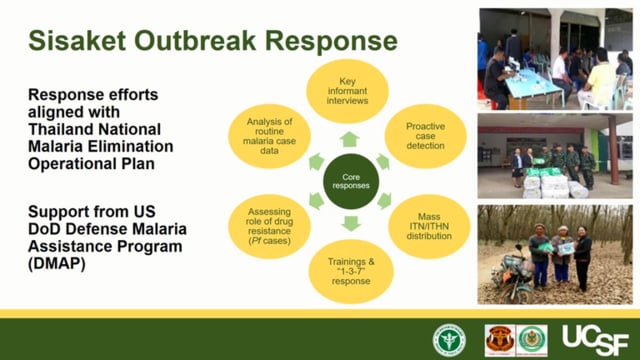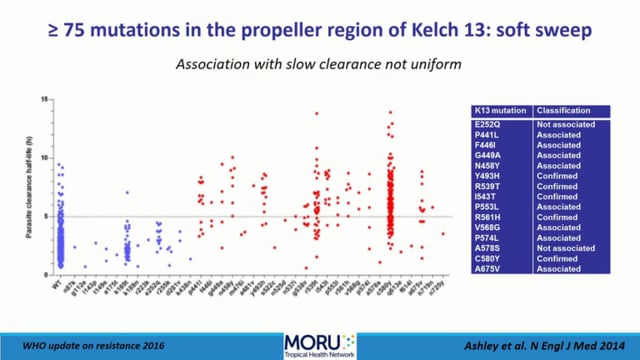ASTMH 2018, Wanchai Lausatianragit: “Coordinated Thailand Ministry of Public Health and Royal Thai Army-US Army civilian-military response to a malaria outbreak in Northeast Thailand”
Collaborator(s): Ministry of Public Health (MoPH) Thailand, Thailand
Countries: Thailand
Published: 31/10/2018
In collaboration with ASTMH, Image Audiovisuals, and session presenters, MESA brings you this webcast from the 67th ASTMH annual meeting in New Orleans, October 2018
Title: “Coordinated Thailand Ministry of Public Health and Royal Thai Army-US Army civilian-military response to a malaria outbreak in Northeast Thailand”
Speaker: Wanchai Lausatianragit, Sisaket Provincial Health Office, Sisaket Province, Thailand
Session information:
Symposium 118: Malaria Elimination in Asia and Africa
October 31, 2018, 8:00 AM – 9:45 AM, Marriott – Mardi Gras D (3rd Floor)
Abstract:
In April 2017, the Thailand Ministry of Public Health (MoPH) reported a malaria outbreak in Sisaket Province, along the Thai-Cambodian border. Between April and November 2017, 713 cases were reported: a five-fold increase from the same time period in 2016. A similar increase in cases (n=119 versus n=16) was found in a Royal Thai Army (RTA) cohort stationed in the Sisaket. The majority of cases were reported from three malaria-endemic districts: Khun Han (47%), Phu Sing (25%), and Kantharalak (24%). Cases were primarily P. vivax infections (76%), among males (88%) working in rubber plantations (63%) or as military and/or border police (15%). To stem the outbreak, the Sisaket Provincial Governor launched an Emergency Operations Center (EOC) including representatives of MoPH, RTA and US components of the Armed Forces Research Institute of Medical Sciences (AFRIMS), the University of California, San Francisco, forest service staff, local military personnel, border police, and local administrative organizations. The response focused on three main efforts derived from the MoPH’s National Malaria Elimination Strategy: 1) proactive case detection; 2) a “1-3-7” approach, in which both civilian and military malaria cases were reported within 1 day, confirmed and investigated within 3 days and responded to within 7 days; and 3) analysis of genetic markers among P. falciparum cases to assess for drug resistance. A total of 6,299 people were screened by microscopy and PCR in 24 high-risk villages and military bases. All cases were promptly treated using supervised treatment. Confirmed cases were followed for up to 90 days, with microscopy smears and dried blood samples collected at each follow-up visit. In addition, 61 key informant interviews were conducted. To date, a total of 24 case investigations among RTA have been conducted. Analysis of the root causes of the outbreak, findings from outbreak response activities, and lessons learned in integrating civilian and military efforts will be presented. The Sisaket outbreak response demonstrates the necessity of civilian-military cooperation to support Thailand malaria elimination goals.
THEMES: Capacity Building | Drug Resistance | Health Systems | Surveillance


